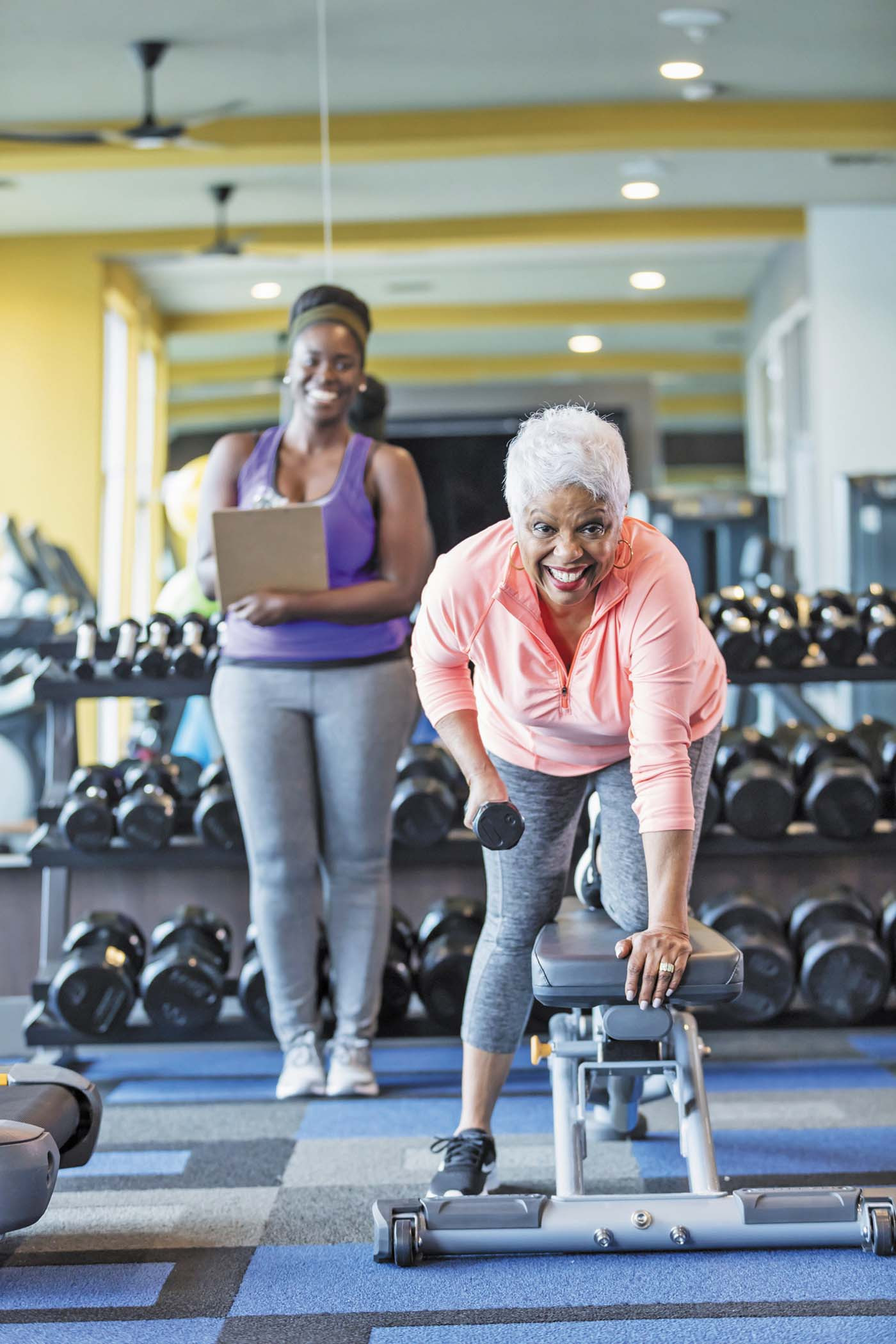
Driving with arthritis pain: Stay comfortable — and safe — behind the wheel

Daily cup of coffee may prevent afib recurrence

Gene-editing therapy lowers harmful blood fats in early study

What is EMDR therapy, and who can it help?

GLP-1 drugs versus bariatric surgery for treating obesity

Two dumbbells, three exercises, and 10 minutes

Easing the emotional burden of IBS

Modify your push-ups to meet your fitness level

What is long QT syndrome?

Stroke survivors may benefit from very low LDL levels
Physical Activity Archive
Articles
Harvard study: Hot yoga may help ease depression
A 2023 study found that people with depression who attended at least one "hot" yoga session per week for eight weeks had significantly reduced depression symptoms, compared with people who did not perform hot yoga.
How a personal trainer can enhance your workouts
Personal trainers can provide a range of benefits, including developing a personalized, balanced workout. People focused on heart health often prioritize exercise that raises their heart rate (cardio or aerobic exercise). But strength training builds lean muscle mass, which helps burn body fat, keeps blood sugar in check, and may help reduce cholesterol levels. Trainers also teach people how to exercise safely to avoid injuries (which is especially helpful when using free weights) and also provide motivation to foster a positive mindset.
Strength training tied to smaller risk of knee osteoarthritis and pain later in life
In a 2023 study, people who engaged in regular strength training were less likely than those who didn't to develop knee pain and knee osteoarthritis as they approached their senior years.
Try this: Get jumping with plyometrics
Jumping rope is an ideal plyometric exercise that helps improve coordination, agility, and flexibility and offers an excellent heart-pumping workout.
Mood boosters
Everyone goes through periods when they feel low, lethargic, or stressed. These episodes usually pass after a while, but if symptoms linger or begin to interfere with daily life, people should seek professional help. Otherwise, people can take several steps to boost their mood, such as exercising more, spending time outdoors, volunteering, meditating, and keeping a gratitude journal.
Why women take the fall
Falls are the leading cause of injuries and accidental deaths among Americans 65 and older. Women fall more often than men and are far more likely to show up at an emergency room because of a fall. Women are especially vulnerable to falling due to weaker bones, lower muscle mass, higher rates of incontinence and antidepressant use, and a tendency to multitask. People can reduce their fall risk by doing strength and balance exercises, getting regular vision and hearing exams, reviewing their medications, and keeping floors clutter-free.
About 20 minutes of exercise may offset risk of sitting all day
Compared with people who sit for eight hours daily, people who sit more than 12 hours a day may be more likely to die prematurely. But just 22 minutes of brisk walking or similar activity daily may offset that risk, according to a 2023 study.
Seeking fitspiration on social media?
Fitspiration describes social media posts intended to inspire physical fitness and promote health. But is this type of motivation helpful? A recent study looked deeper into the trend.
7 things your personal trainer wants you to know
It takes more than a weekly session with a personal trainer to maximize exercise benefits. Personal trainers recommend that people exercise in between training sessions; do strength training at the beginning of a workout; alternate the muscle groups that get a workout; challenge each muscle group with a variety of exercises; stretch regularly; eat a healthy diet to fuel the body; and exercise purposefully, with a strategic approach that moves them closer to their exercise goals.
Time for your annual health review
The start of a new year is always a great opportunity for people to re-engage with their health. One of the first steps is to conduct a personal health review. It's a way to measure where a person's health stands now, outline the goals, and create a strategy to reach them. A personal health review follows a three-step process: gathering all current health information, listing short- and long-term goals, and sharing everything with a doctor during a scheduled wellness visit.

Driving with arthritis pain: Stay comfortable — and safe — behind the wheel

Daily cup of coffee may prevent afib recurrence

Gene-editing therapy lowers harmful blood fats in early study

What is EMDR therapy, and who can it help?

GLP-1 drugs versus bariatric surgery for treating obesity

Two dumbbells, three exercises, and 10 minutes

Easing the emotional burden of IBS

Modify your push-ups to meet your fitness level

What is long QT syndrome?

Stroke survivors may benefit from very low LDL levels
Free Healthbeat Signup
Get the latest in health news delivered to your inbox!
Sign Up











